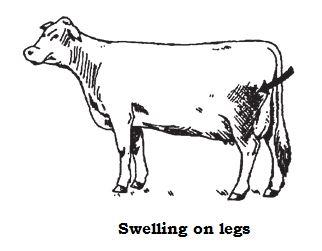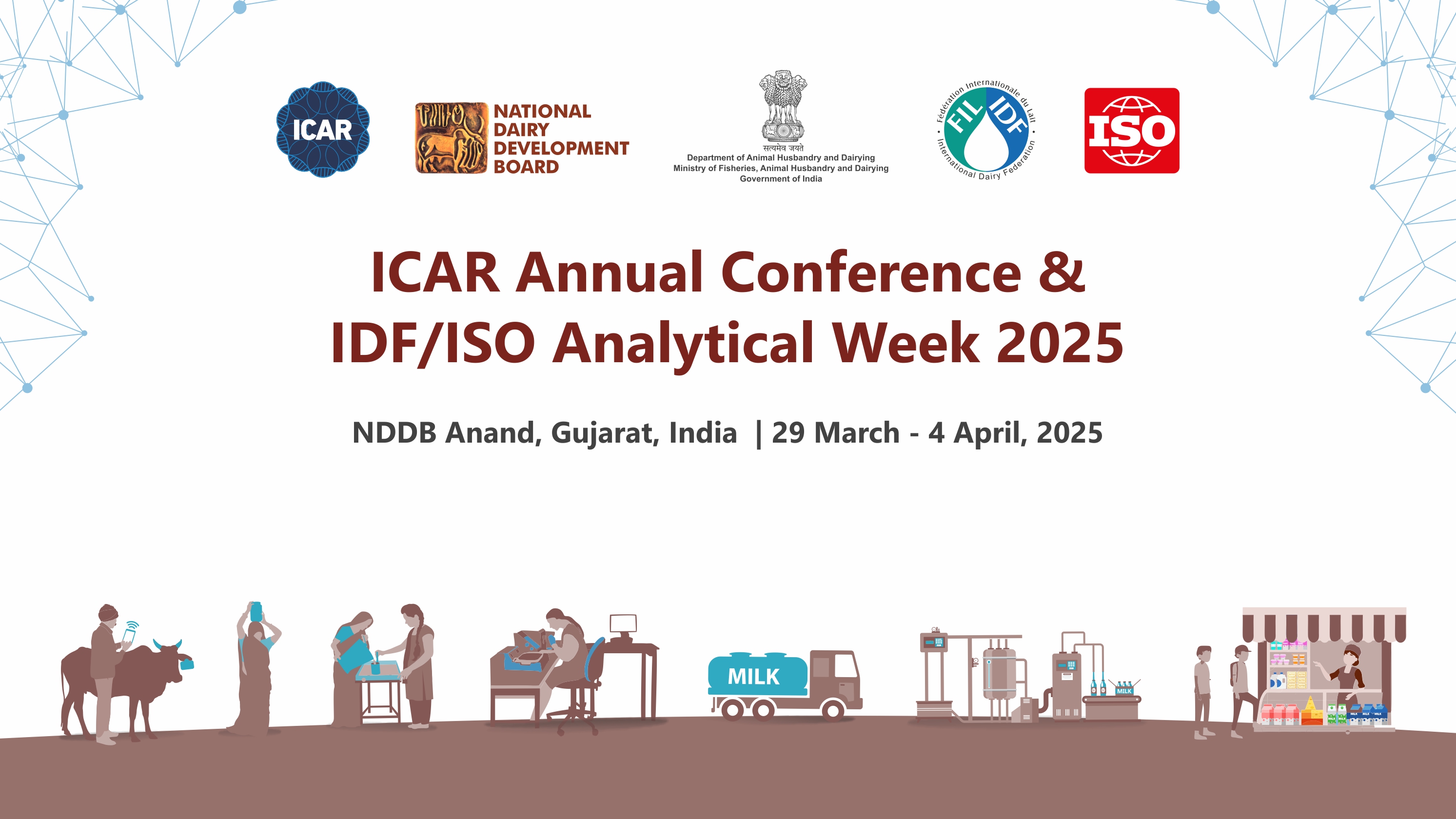
- An acute disease of cattle characterized by emphysematous swelling usually in heavy muscles.
- Buffaloes usually suffer from a milder form.
- Contaminated pasture appears to be major source of infection.
- Healthy animals in the age group 6 months to 2 years are generally affected
SYMPTOMS
- Sudden high fever (107ºF-108ºF) and the animal stops eating and ruminating.
- Characteristic hot and painful swelling develops on loin and buttocks causing lameness. Swelling sometimes affects shoulders, chest and neck also. When pressed, a crackling sound is heard because of the gas accumulation in the swellings.
- Animal dies within 24-48 hrs of appearance of symptoms. At this juncture, swellings become cold and painless.
PREVENTION
- Vaccinate all animals which are 6 months and above of age annually before the onset of monsoon in endemic areas.
- Burning the upper layer of soil with straw to eliminate spores may be of help in endemic areas.
- Sprinkle lime over carcass at the time of burial.
TREATMENT
- Treatment may be effective in initial stages of infection. However in most cases treatment is not worth the while.
Get your animals vaccinated annually against BQ in endemic areas
